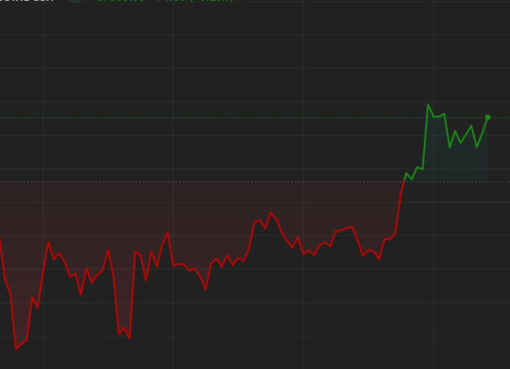A branch of the Russian federal government has recently published a draft of new litigation called “On Digital Financial Assets,” which is focused on enforcing strict cryptocurrency laws in the country. The legislation has not been approved yet and has been in discussion since 2018.
The new laws define Bitcoin as property but not legal tender, and propose, among many other things, that Bitcoin (BTC) miners register as individual companies so they can be appropriately taxed. President Putin is planning on developing and revealing a new tax for Bitcoin miners by July 1, but many are skeptical about the government’s ability to regulate the cryptocurrency industry.
In spite of this recent development toward increased regulation of digital assets, Russian peer-to-peer Bitcoin transactions have spiked significantly.
In this article, Russia’s legislative approach toward cryptocurrencies will be discussed and compared to the attempts made by other governments to understand and regulate the industry. First, let’s take a look at the recent popularity of Bitcoin in Russia.
Related: One Step Forward and One Step Back: Why Is Russia’s Crypto Regulation Treading Water?
The popularity of cryptocurrency and financial technology
It is clear that financial technology and the shift toward online banking, investing and cryptocurrencies are changing the world.
Debit and credit cards, online banking and the popularity of digital receipts with the simple snap of a picture on your phone may turn paper money and other paper documents obsolete very soon. The free investing app Robinhood caused a surge of millennial investors to join around the coronavirus pandemic, rocking the United States stock market and creating financial gains that even the experts couldn’t predict. Now, even PayPal and Venmo are discussing rolling out their own crypto buying and selling platform.
With nearly 84% of millennials either owning a website or using social media daily as a means to support their income, it is obvious that the internet is the new frontier for earning, managing, and investing money. However, many in the government have concerns that the rapidly developing industry of cryptocurrency will become more like the Wild West, where lawlessness abounds and illegal activities rule the day.
The question is: Do politicians around the world know enough about cybersecurity and cryptocurrency to effectively regulate these industries? Or are they still grasping at the darknet?
Is it possible to police the internet?
Since its inception, the government has grappled with how to regulate cryptocurrencies. “There is no doubt that decentralization and peer-to-peer transactions by their very nature presents regulators with real challenges,” says Eddy Trava, CEO of Coinsilium, a blockchain and digital asset investment firm.
Predictably, most central banks were quick to vilify Bitcoins, attributing them to immoral activities such as human trafficking — and governments were quick to follow this train of thought.
However, as the industry has grown and gained legitimacy, many governments are switching tracks and trying to make sure they also have a finger in the pie by focusing tax efforts on digital assets.
Many are worried that this increase in oversight is an infringement of digital privacy and defeats the purpose of blockchain technology. Countries such as Australia have passed laws giving the government backdoor access to encrypted technology under the guise of fighting terrorism and criminal activities. But cryptocurrency users expect to have trustworthy platforms for trading — not ones that can be legally obligated to aid in government surveillance.
Many critics note that the increased government focus on cryptocurrencies — also seen in South Korea with the announcement of a new Bitcoin tax — is occurring at a suspicious time. World governments are seeing huge economic uncertainty and facing vast public health expenditures in the wake of the COVID-19 pandemic, so it makes sense for these governments to be looking for different avenues for taxation and revenue.
Peer-to-peer exchanges and trades are booming in Russia
This new development regarding Russian regulation of digital assets has not put a damper on peer-to-peer exchanges and trades. Coin Dance statistics indicate that Russia accounted for 20% of Localbitcoins trade volume in May — the second month in a row that the country has topped the charts for trade volume.
“We are following the legal situation in Russia,” a spokesperson for Localbitcoins claimed, adding, “We hope that Russian people will continue to have access to Bitcoin and its benefits in the future too.”
However, it seems like most Russian cryptocurrency aficionados are not really worried.
Artem Tolkachev, Russian citizen as well as founder and CEO of digital asset investment platform Tokenomica, feels like the draft of the legislation is more a failed attempt to understand cryptocurrencies than a concerning new development in the industry. Tolkachev said:
“Given the Central Bank’s prohibitive stance and other law-making actors’ lack of expertise with the subject, the [presidential] order has been executed in a purely formal fashion — with the view to ostensibly develop regulation while refraining from taking any tangible decisions in the text. The resulting bill, ‘On Digital Financial Assets,’ has gone through several editions, but it never got close to regulating the most pressing matters.”
What is the future financial frontier?
As rapidly developing financial technology calls to question our traditional methods of banking and investing, many wonder whether governments and even economic experts adequately understand the new online frontier of finance.
In the future, will we see more “Buffett was wrong” moments and lose faith in such time-honored tipsters as the Oracle of Omaha? Will politicians and governments with limited cybersecurity knowledge ever be able to regulate the cryptocurrency industry in an effective and non-intrusive way? Are we on the verge of a series of unpredictable economic developments as currency and digital assets become rapidly decentralized, and even the most financially unsavvy can invest en masse online with the tap of a finger?
It’s clear that many Russian investors believe in the future of cryptocurrency and have much less faith that their government can ever effectively put a damper on this industry’s growth. They are playing a high-stakes gamble and investing a large amount of money in the hopes that Bitcoin pays off as an investment — and so far, they are winning.
The views, thoughts and opinions expressed here are the author’s alone and do not necessarily reflect or represent the views and opinions of Cryptox.
Sam Bocetta is a freelance journalist specializing in United States diplomacy and national security, with an emphasis on technology trends in cyber warfare, cyber defense and cryptography. Previously, Sam was a contractor for the U.S. Department of Defense, working in partnership with architects and developers to mitigate controls for vulnerabilities identified across applications.




